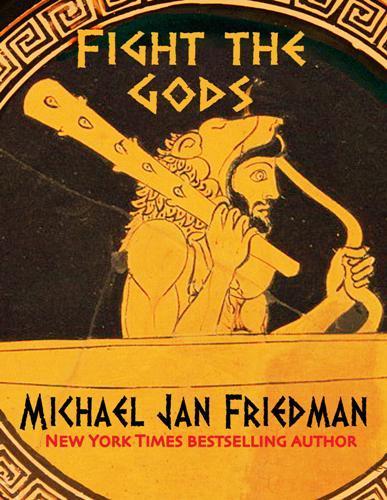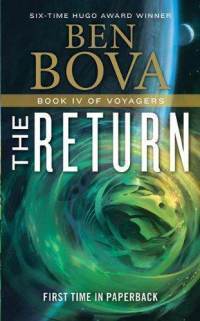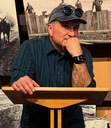Phil Giunta's Blog, page 111
December 24, 2011
Happy Holidays!
December 20, 2011
About this Writing Stuff...(Last one for 2011!)
For now, though, explore the darkness within with Ann Aguirre. Chuck Sambuchino discusses what seems like common sense as he explains why writers should make themselves easy to contact. Jami Gold gives us a two-fer on the cost and quality of eBooks. Does the former give any indication to the latter? We also get a double shot from Jody Hedlund on identity crises and driving yourself crazy as a writer. Dean Wesley Smith observes that writers are in a big hurry these days and his wife Kristine Kathryn Rusch touches on the treatment of writers by publishers.
The Darkness Within by Ann Aguirre
Why Writers Must Make Themselves Easy To Contact by Chuck Sambuchino
How Much Are You Willing to Pay for an eBook? by Jami Gold
Are All Cheap eBooks Crap? by Jami Gold
The Inevitable Identity Crisis that Happens After Publication by Jody Hedlund
How to Drive Yourself Crazy as a Writer by Jody Hedlund
The Big Hurry by Dean Wesley Smith
Traditional Publishing and its Suppliers by Kristine Kathryn Rusch
Happy Holidays and a
Fantastic New Year!
Proofers and Critters
While haunted by visions of her brother's suicide, psychic-medium Miranda Lorensen is called to Lancaster, Pennsylvania to investigate a series of bizarre deaths—some of which are also suicides. Miranda and her team of paranormal investigators quickly find themselves confronted by a vengeful spirit awakened thirty three years after a bloody family tragedy. Miranda realizes that only she can stop the entity before it claims its final victims, but will the lives she save redeem her for the brother she failed?
[image error]
December 14, 2011
Book Review: Fight the Gods by Michael Jan Friedman
Throughout Fight the Gods, retired NYPD cop, Zeno Aristos, hears voices in his head. Actually, for many years in his life, Zeno has heard a moody, cantakerous voice that he calls simply "Ghost". Unusual as that may seem, Zeno has become quite comfortable with the situation, though clearly, he doesn't always do what the voice in his head tells him to.
Zeno retired from the force claiming that his heart was no longer in it, to the frustration of detective Tomi Pappas who also happens to be Zeno's beautiful girlfriend. All of Tomi's attempts to help Zeno find another job fail as tries to regain some direction in his life.
As it turns out, there is one irresistible activity that had captured Zeno's heart as a kid--handball. And not just any old schoolyard variety. We're talking New York City handball where reps and finances are made or broken. You talk, you walk.
It just so happens that a gangster known on the streets as Junior, and wanted by the NYPD, has earned a rep as the greatest handball player in the city. As such, Zeno challenges him to a $10,000 game--which is cut short when the cops show up to take Junior down. Yet somehow, Junior escapes using the same super human agility and speed that he'd shown on the handball court.
As Zeno gives chase, a series of bizarre events occur that culminate in the crash of a police helicopter. Shortly thereafter, Tomi is kidnapped. Zeno suspects Junior's involvement and in order find her, Zeno must track down the gangster.
In doing so, he gets far more than he ever bargained for. Battles with Greek gods, trips to Hell, and a conversation with his own ghost are but a few of the surreal adventures Zeno undertakes in his single minded determination to rescue his girl.
Michael Jan Friedman presents a fast-paced, engaging tale with snappy dialog and interesting characters. There is no fluff here. Friedman holds the tension adroitly through each chapter and peels away the layers of mystery slowly, revealing teasing truths about Zeno--and those he's forced to work with--one morsel at at time until the final chapters.
All told, a truly enjoyable read and fine venture into the Urban Fantasy genre for Mr. Friedman!
December 13, 2011
About this Writing Stuff...
Do You Live What You Believe? by Shelli Johnson
How Much Time Should Writers Devote to Social Media? by Jody Hedlund
Barry Eisler and Joe Konrath vs. Hachette Book Group by Joe Konrath
The Twelve Most Dangerous Words for Writers by Kim Wright
Out in the E-World by Jael McHenry
A Sense of Self by Donald Maass
Invest in Yourself by Sharon Bially
50 Simple Ways to Build Your Platform in 5 Minutes a Day by Christina Katz
How to Use an Outline to Write a First Draft by Karen S. Wiesner
Coming in January from Crazy 8 Press: Latchkeys
December 11, 2011
Characters, Dialog, and Description with Howard Weinstein
Recently, Howard joined forces with Michael Jan Friedman, Bob Greenberger, Peter David, Glenn Hauman, and Aaron Rosenberg to form a small press called Crazy 8 Press to release future works. Howard is currently hard at work on a novel based in the old west. I interviewed him for this blog back in January, which you can read HERE . Mike, Bob, and Aaron have also been interviewed over the past year.
Check Out That Character
OK, so you have your characters DOING and reacting to things, but are you giving the reader a specific sense of who they are and how they see the world?
If you have ever attended one of our con workshops, you've heard us yammer about this. Each character (even minor ones) needs a unique attitude toward the world, which in turn enables you, the writer, to differentiate their actions and their dialog. Without that, it's harder for readers to invest in and root for (or against) the people you're working so hard to create. This isn't easy to do, but it gets easier with practice. And it's something you can retrofit after you've done the bulk of your writing which leads to...
Dialog About...well....Dialog
The above advice on characters will also serve to make your dialog snappier. It's easier to write for characters who have very different POV's from each other. When you don't have enough of that, dialog can become bland and merely informational instead of helping you define your characters and create crackling conflict (or humor) within every conversation.
Also, anyplace where you've got one character speaking for multiple paragraphs of dialog, that's a patch which could be trimmed and tightened. Or if everything this chatty character is saying is truly too important to lose, then make it more "ping-pong-y" with the other character in the conversation interrupting, preferably with questions or disagreement. Back and forth conversations are always more interesting than speeches.
Writing realistic dialog is hard -- lots of best selling novelists have been unable to do it well because it didn't seem like a skill they had cultivated. For me, I think the fact that I started out intending to write scripts, where dialog is so primary, helped me get a feel for writing dialog long before I ever tried writing novels.
Describing Descriptions
When you go to the trouble of including physical and sensory descriptions of places in order to set the scene and location, are those descriptions from a character's POV? Or are they omniscient, author POV? It's almost always better to write descriptions from a specific character POV -- we see what he sees, filtered through his perceptions and history. That allows you to pick and choose specific impressions and details rather than simply describing a room. Think about it as if you're the director choosing camera angles -- which is more interesting, a generic establishing shot, or a shot that picks out details which help define the time and place, the mood, and the characters living and acting within that space?
But even where you ARE specific with something descriptive, does it serve a purpose? To reveal character or enhance atmosphere? Does it add to the scene or is it merely a detail for its own sake? Maybe it's a potentially evocative sensory detail, but is it just sorta there? How might you have used it better?
What if you'd used it as something that filled an uncomfortable silence? Then it becomes a detail -- something a character would notice, and we see through his POV -- that serves to emphasize his experience and bring us inside his head at a key moment.
One of the realizations that scared the crap outta me when I wrote my first novel was this: Pretty much EVERY single word COUNTS! They all have to be carefully chosen and have a reason for being included. That can be very stressful if you think of words as potential enemies waiting to trip you up if you choose the wrong ones. But words are neutral -- they're all just waiting for us to choose the best combination we can (best doesn't mean perfect) in order to tell our story.
I don't want this to paralyze you. Remember that NOBODY gets it all right on the first draft (or even the second, for most of us). Just get the story down, then go back and refine it. It takes practice.
A Final Note About Characters
Tom Fontana, writer-producer and creator of the great Homicide, once talked about the importance of characters, and he outlined a simple 3-level method for creating good characters:
1- Head: How does a character think, what's his education level?
2- Heart: What does a character believe, what makes them laugh or cry?
3- "Nether" zone: Who does this character want to sleep with?
I kinda liked that!
December 7, 2011
Another Favorable Review!
Howard Weinstein, NYT bestselling author and the youngest writer to pen an original episode of Star Trek, just left a five star review on Amazon this morning for my paranormal mystery, Testing the Prisoner.
"A darkly personal supernatural psycho-thriller about a small-town mayor who finds himself fighting to save his own soul from the demons spawned during his abusive childhood and now unleashed after the death of his estranged mother.
Author Phil Giunta confronts the blurred border between love and hate hidden within the human heart in this promising, ultimately hopeful first novel."
I'll take it! :)
About this Writing Stuff...
For now, though, we have a longer than usual round up. Husband and wife Kristine Kathryn Rusch and Dean Wesley Smith provide excellent information about agents and traditional publishing. Jami Gold offers pointers on how to make the most of a scene while Jody Hedlund counts 6 ways to make learning fiction techniques less painful. Jane Friedman talks about copywriting, Shelli Johnson about faith, and Krissy Brady on writing from uncertainty.
And Peter David breathes new life into his Hidden Earth trilogy with the re-release of Darkness of the Light to be followed by the long anticipated sequel Height of the Depths.
The New World of Publishing: Why Bad Agent Information Gets Taught by Dean Wesley Smith
How to Make the Most of a Scene by Jami Gold
6 Tips to Make the Learning of Fiction Techniques Less Painful by Jody Hedlund
Journey with Peter David to the Hidden Earth by Crazy 8 Press
The Business Rusch: The Writer's Guide to Evaluating a Traditional Publishing Company by Kristine Kathryn Rusch
The Business Rusch: Writers and Traditional Publishing Companies by Kristine Kathryn Rusch
The Number One Overlooked Skill for Every Author by Jane Friedman
Stepping Out in Faith by Shelli Johnson
How to Use Uncertainty to Fuel Your Writing a review by Krissy Brady

November 30, 2011
Book Review: Voyagers IV: The Return
Star traveler Keith Stoner and his family return to Earth in the ancient alien ship that once held Stoner in cryonic freeze decades before. When he rejoined the human race the first time, the technology of the alien ship had ushered in a new age of enlightenment for the human race. Now, however, no trace of Stoner's previous visit to his home planet can be found and not one of the technological advancements--"gifts from the stars"--is evident. Instead, Stoner finds an alternate Earth, one controlled by ultra-conservative religious groups. In the case of the USA, it's the New Morality.
At the same time, engineer Raoul Tavalera arrives home after six years aboard the Goddard Habitat orbiting Saturn. There, he had fallen in love with the project's fiery administrator, Holly Lane. Tavalera returns to an Earth as alien to him as it is to Stoner and he quickly longs to return to Holly, but he finds himself under the thumb of the New Morality. They have pervaded, and in fact invaded, American government, schools, even private homes, all in the name of unifying the nation under Christ.
Meanwhile, rumblings of nuclear war stir Stoner into action. After Tavalera is recruited to work for the New Morality, he encouters Stoner and for a time, becomes the star travelers human contact. However, what Stoner and Tavalera do not realize is that key players in the New Morality are setting a trap for Stoner using an international summit of the world's three largest nuclear powers--USA, China, and Iran.
Dr. Bova does a fair job in crossing his own universes here, despite the lack of explanation as to how it happened. Readers of his Grand Tour series will recognize the New Morality which is omnipresent in each story from that series. In The Return, however, the story merely eludes to the possibility that "somehow" this must be an alternate Earth than what Stoner left a century before to continue his exploration of the cosmos.
Also, the character of Stoner's wife, Jo Camerata, is nearly irrelevant to the story, relegated to a "nervous-Nellie" who spends her time inconsistently warning and chiding her husband and children about interfering in human evolution yet not exactly stepping in to prevent it. In Voyagers II, Camerata had been a fierce, bold captain of industry with the temerity to manage an entire corporation while surviving the insane machinations of her conniving, murderous husband.
All told, The Return is a decent ending to the series despite the aforementioned issues. Bova's flawed, human characters are well developed even if Stoner's family is not. The story and pacing make for a definite page turner.
November 29, 2011
About this Writing Stuff...
Even Though Free is IN, Don't Forget to Buy Books, Too by Jody Hedlund
The Critical Aspect of Digital Publishing by Barry Eisler
Fresh Ways to Look at Your Crappy Writing by Yuvi Zalkow
11 Frequently Asked Questions about Book Royalties, Advances, and Money by Chuck Sambuchino
The 10,000 Word Day by Zoe Winters
Inept Publisher Rises From the Dead by Lee Goldberg
4 Ways Inspiration Helps You Beat Writer's Block by Sarah Maurer
The 90 Top Secrets of Bestselling Authors compiled by Jessica Strawser






